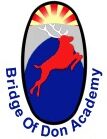Key Learning in English
Context for Learning:
The course is built around the English Experiences and Outcomes and centres on the four modes of communication: Reading, Writing, Talking and Listening. Pupils will follow a structured course timeline designed to deliver breadth whilst ensuring real development of the key skills of English. Pupils will have the opportunity to cover the Experiences and Outcomes right up to level 4, ensuring they are progressively challenged and fully prepared as they progress through their school career.
What will be covered over the year?
Pupils will learn to:
- Build their skills in Close Reading through answering questions on passages and completing Close Reading questions once a fortnight.
- Read novels, plays, poetry and media and learn the skills of analysis through each unit as well as understand and be able explain how character, setting and theme are explored in the texts.
- Read non-fiction texts in class and both fiction and non-fiction in their library period once a fortnight.
- Write effectively in both fiction and non-fiction genres.
- Become effective communicators through talk and presentations and equally develop their listening skills through group work and whole class presentations.
Homework
Pupils will have regular homework in S1: personal reading (library books), regular spelling tests once a fortnight and at the end of each unit will be expected to complete an extended piece of writing in essay form only if there isn’t enough time to complete the task in class. Pupils then get the opportunity to redraft their work at home
What you can do at home to help-Lifelong Learning
Please try and make time to read with your child. This has become a forgotten art but is invaluable to progressing their Literacy-you could be surprised at what they don’t know! This will become a good habit and routine if maintained over time and it helps parents know what their child has been learning and needs to learn. The personal reader is perfect for this but feel free to get them reading non-fiction such as newspaper articles from good newspapers. There is a great deal of choice of topic in articles and you are bound to find one that is suitable and may only take twenty minutes to read.
Encouraging your child to be aware of what is happening around them and around the world, so watching the news together in the evening or encouraging your child to watch documentaries will really help in their progress.
Finally, encourage your child to talk to you about their day and explain what they have learned. This seems so simple but is really effective in making them more accountable in their learning each day.
These three simple moments of dialogue with your child will give you the opportunity to discuss their understanding of what they have just seen or read and question anything they don’t understand. If we can get our young people into this habit they will be more inclined to seek your help and advice at home when they hit obstacles in their understanding or learning.
